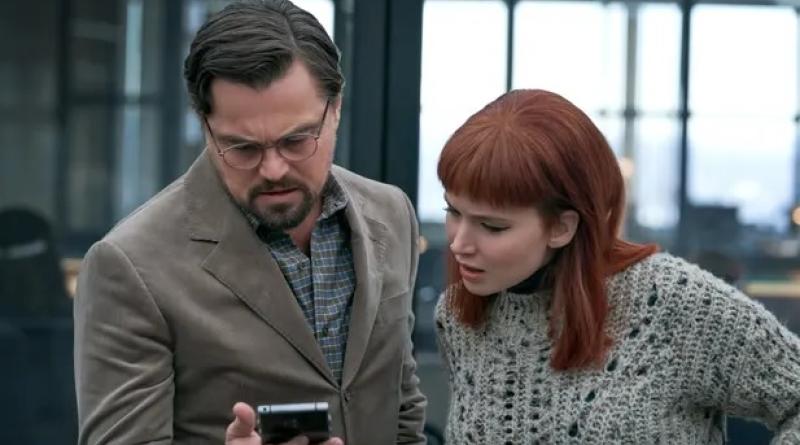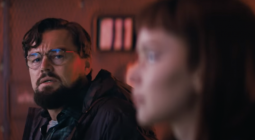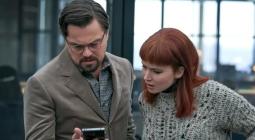Don’t Look Up is right, the end is nigh. Are we ever going to care?

People’s detachment in the face of annihilation feels terrifyingly authentic
There is a good reason why people wearing signs in the street saying “The End is Nigh” are ignored: even if their message is true, the delivery is hopelessly inadequate.
The end is nigh, is it? Right, well in that case I’d better get a decent bottle of wine in tonight, then. Lol.
But what if our world really was in peril and the warnings weren’t coming from raving individuals – but from our civilisation’s most revered institutions? Would we heed the warnings then? Would we heed them if the media also, eventually, took the threat seriously, and the world’s most respected news organisations made it their leading story?
Maybe we just wouldn’t. Perhaps we simply don’t want to hear about it.
This is what the new Netflix film Don’t Look Up grapples with – while ostensibly about a huge comet on a collision course with Earth, the thinly-disguised subject of the film is how our dysfunctional society is dealing with the disaster of the climate crisis in a deeply dysfunctional manner.
Unlike a devastating impact from a comet, the climate crisis has been described as the world’s slowest breaking news story. Since the first warnings about the greenhouse effect from exhaust gases in the middle of the 20th century, the impact on the planet has increased over the last few decades – slowly on human timescales, but unbelievably rapidly in comparison to the rates of change which have always previously occurred here.
But now the crisis has a horrible momentum: The IPCC report released in August 2021 described the calamities bearing down on us as "code red for humanity". This was exemplified by a year of extreme weather events including appalling floods and terrifying heatwaves and fires which killed thousands of people across the world.
Even amid this carnage and ahead of the UN’s Cop26 summit, supposed climate leaders like the UK couldn’t even commit to cancelling a planned coal mine and new gas and oil projects, some countries didn’t bother to attend, and – as the International Energy Agency highlighted this month – global coal usage in 2021 will set a record high.
The targets set by countries at Cop26 will not remove enough of the climate-altering pollutants going into the atmosphere – and that’s if governments and organisations stick to these targets.
Scientists everywhere are in disbelief. Measured warnings aren’t working, urgent warnings aren’t working, films and TV programmes and news articles aren’t working, direct action isn’t having a big enough impact. The burning of fossil fuels keeps increasing – we’re still pretending not to see the huge fiery extinction-level comet bearing down on us.
But though disaster is looming, we somehow feel we can still delay making difficult decisions – the world turns, the sun always rises. The only problem is that for growing numbers of people, it doesn’t.
Don’t Look Up captures the pent up fury and mania of a society totally at odds with itself. Nothing makes sense. We are numb. We are confused. We are vulnerable. We are angry. Ultimately the lack of coherence wears us out and makes us feel powerless.
As an environment writer, breaking through numbness, apathy and disbelief when it comes to the climate and environment crisis is a monstrous challenge.
To keep up to speed with all the latest opinions and comment sign up to our free weekly Voices Dispatches newsletter by clicking here
Even though Cop26 was front page news for several days, the response from the world’s governments has been to exploit loopholes to rebrand pollution and (mis)place trust in technologies such as carbon capture, electric vehicles and nuclear power, instead of focusing on the critical issue of ending fossil fuel burning.
It is mind-bendingly frustrating to witness our leaders failing us on such a grand scale, and then it is doubly frustrating when the sum of the media and wider society’s reaction to this treachery amounts to mere tumbleweed rolling past.
You may not think Don’t Look Up is a good film, but it does a good job of holding a mirror up to a society up to its neck and suggests that maybe we should do a little better.
Harry Cockburn is Environment Correspondent and a news editor at The Independent
cover photo:
Can Leonardo DiCaprio and Jennifer Lawrence save the world from its stupid self?





